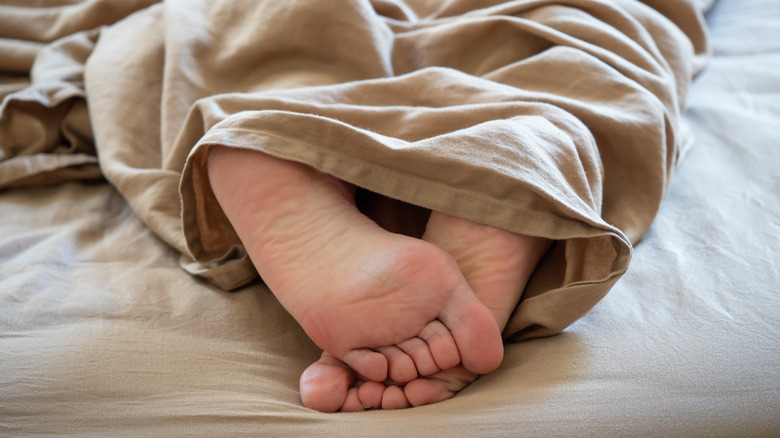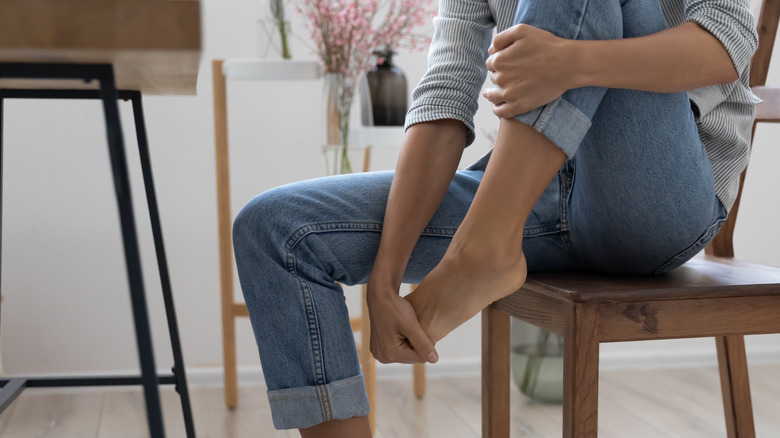The Real Reason Your Foot Falls Asleep
That pins and needles feeling in your foot after sitting in one position too long is a strange sensation. What's even stranger is when you say your foot "fell asleep." What does that even mean? Can your foot technically "fall asleep," and why does it happen? Let's investigate.
That sensation of your foot feeling numb or tingling is typically normal and is called paresthesia. Paresthesia happens when continued pressure compresses nerves in your foot, temporarily cutting off the nerve's communication with your brain (via University of Pittsburgh Medical Center).
Paresthesia usually happens when you've been sitting in the same position for too long or crossing your legs. It should be cleared up quickly after switching positions. But there are some ways to speed up getting the feeling back into your foot. Some suggestions are shaking and rolling your ankles, walking around, giving yourself a quick foot massage, taking off your shoes if they feel too tight, and applying heat to your feet (via Healthline).
When to see a doctor about your foot falling asleep
There are some cases in which chronic paresthesia can be a sign of a more serious issue, like an underlying neurological disease or traumatic nerve damage (via National Institutes of Health). Some more-serious causes could be encephalitis, multiple sclerosis, stroke, transverse myelitis, or a tumor pressing against the brain or spinal cord. A pinched nerve or carpal tunnel syndrome are also other options.
You should see a doctor if you are concerned about any health conditions you may have. With your medical history, an exam and any necessary labs, your medical team should be able to diagnose if your paresthesia is part of a larger issue or just a mild annoyance.
Otherwise, be mindful of the positions you put your body in and change them often. You should also ensure your workstation is ergonomic and try to stand periodically. Sleeping is another time you are largely sedentary, so try switching positions to see if that helps with paresthesia.


